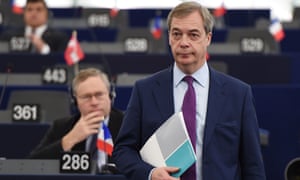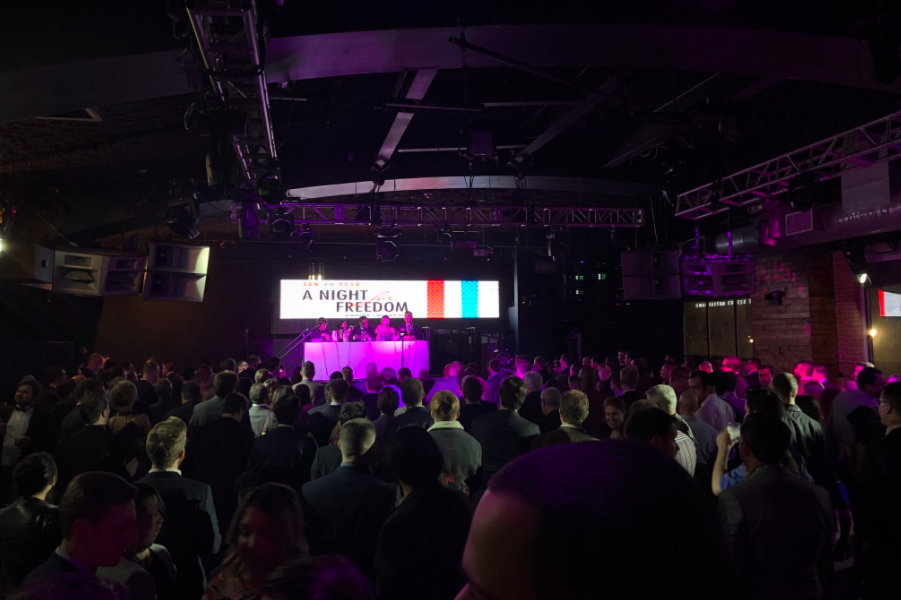
THIS IS A VERY IMPORTANT ARTICLE THAT TIES IN THE GLOBAL CRIME WE ARE WITNESSING AND ALL THE MAJOR PLAYERS!
Pay attention to the overlap.
There is an international crime ring we're talking about...
ALSO...BIG Semion Mogilevich mention!
Spain's Robert Mueller takes on the Russian mob

A Mosso D’Esquadra (Catalan regional police officer) salutes Spanish anti-corruption prosecutor José Grinda, center, as he leaves the Generalitat de Catalunya (Catalan government) in Barcelona in 2017. (Photo: Pau Barrena/AFP/Getty Images)
Dawn’s first rays were streaming through the palm trees in Spain’s laid-back jet-setter paradise Marbella when the crashing of waves was drowned out by the whomp-whomp of hovering police helicopters and the wail of sirens. Roadblocks went up and streets were shut down all morning as more than 100 officers of the Guardia Civil, the Spanish military police, raced across the port city — storming villas, ritzy eateries, yachts, a golf course, the soccer stadium, a bank, even raiding a water-bottling plant deep in the dusty hills.
By lunchtime on that Tuesday, Sept. 26, 2017, the police had confiscated 23 luxury autos and hundreds of thousands of euros. They also arrested 11 Russians, including the beloved owner of the local soccer team, Alexander Grinberg, charging him with, among other things, membership in a criminal group — specifically Russia’s most powerful mafia, Solntsevskaya Brotherhood, the world’s richest, said to pull in some $9 billion a year.
A Spanish police report obtained by Yahoo News Chief Investigative Correspondent Michael Isikoff said the group was involved in “criminal activities including drugs, counterfeiting, extortion, car theft, human trafficking, fraud, fake ids, contract killing, and trafficking in jewels, art, and antiques. This was done on an international scale. Not just in Russia. Solntsevskaya has also demonstrated active cooperation with other international criminal organizations, like Mexican mafias, Colombian drug cartels, Italian criminal organizations (particularly with the Calabrian ’Ndrangheta and the Neapolitan Camorra), the Japanese yakuza, and Chinese triads, among others.”

Alexander Grinberg (Photo: Debbie Wallace)
But the “big fish” of that day’s catch was former Russian hotelier Arnold Tamm, aka Spivakovsky, alleged to be a trusted aide to the notorious Semion Mogilevich — a Ukraine-born economist known as “the Brainy Don” whose photo long resided on the FBI’s Ten Most Wanted list. He was described as a “Global Con Artist and Ruthless Criminal,” accused of bilking U.S. investors out of $150 million in a stock fraud. But above all, Mogilevich is a mastermind of cleaning up dirty money — using financial transactions that make the cash generated from criminal enterprises appear legitimate, and park it in accessible and safe investments in Western countries such as Spain or the United States, valued precisely for their adherence to legal norms.
Which is to say that morning’s drama in Marbella was all about money laundering, in this case more than 30 million euros (around $35 million) of illegal profits cleaned up in businesses from the Marbella fútbol club to the Lady of the Night golf course to the Agua Sierra de Mijas water-bottling plant.
And that’s why José Grinda, Spain’s own Robert Mueller, was in town.

Slim, bearded and exuding a calm confidence that belies threats against his life and Russian-sponsored smears of his name, Grinda — leading special prosecutor in the anti-corruption and anti-mafia branch of la Fiscalía, Spain’s attorney general’s office — also investigates corruption within his government, and conducts stings against crime groups of all sorts, Italian to Chinese. But his highest-profile raids — which have garnered Spain a reputation as the most fearless pursuer of mafia operations in Europe, and arguably the world — are directed at Russian organized-crime syndicates, which favor the Spanish economy to recycle the hefty proceeds from drug smuggling, gun running, prostitution and human trafficking. Cleaning up cash, Grinda says, is why the Russians began moving in to these shores more than two decades ago.
And it is where the work of Grinda overlaps with that of America’s Robert Mueller, the special counsel investigating allegations of Russian meddling in the 2016 election. Two of Mueller’s first four indictments, against former Trump campaign manager Paul Manafort and his associate Rick Gates, also a Trump campaign adviser, involve allegations of money laundering for a Russia-linked Ukrainian party. “You know where this is going,” Trump’s former close adviser Steve Bannon is quoted as saying in “Fire and Fury,” Michael Wolff’s explosive book about the Trump White House. “This is all about money laundering.”

Paul Manafort, President Trump’s former campaign chairman, departs federal district court in Washington in 2017. (Photo: Andrew Harnik/AP)
Grinda’s investigations have targeted Russian banker Alexander Torshin, who has been described by Rep. Dana Rohrabacher, R-Calif., as “the conservatives’ favorite Russian.” Spanish authorities sought to arrest Torshin during a planned visit to Spain in 2013 on suspicion that he was laundering money through a Mallorca hotel that he secretly owned from afar; possibly tipped off, Torshin didn’t show in Spain, and Grinda says he’s no longer pursuing the case. But in the years since, Torshin has been making headlines in the U.S. Hewas scheduled to meet privately with President Trump at the National Prayer Breakfast in Washington last year, but the meeting was called off when someone in the administration flagged Torshin as a figure with “baggage.” (Torshin has strongly denied ties to Russian organized crime.) In November, news broke that Torshin had attempted to engineer a meeting between then-candidate Trump and Russian President Vladimir Putin. And this week, McClatchy DC reported that the FBI is investigating whether Torshin donated money to financially support the Trump campaign in 2016, funneling his contributions through the National Rifle Association, which reported spending $30 million to back Trump. It is illegal for foreign nationals to give money to influence a U.S. election. The NRA did not respond to a request for comment.

Alexander Torshin (Photo: Shalgin Alexander/TASS via ZUMA Press)
With 12 years experience of doggedly pursuing crime syndicates, tapping their phones and unraveling their financial tentacles, Grinda — who learned some of the ropes from former Russian intelligence agent Alexander Litvinenko — is now world-famous as an anti-mafia crusader. And that’s a dangerous position to be in. Litvinenko, notoriously, was murdered in London just before he was supposed to meet with Spanish prosecutors to tell them what he knew about Russian mobsters. :weebaynanimated:And Grinda himself, under round-the-clock police protection, has had to fend off accusations of child molestation that he denies and believes were invented by Russian criminals to discredit him.:weebaynanimated:
Retired 25-year FBI veteran Marc Varri, who spent a decade as that agency’s legal attaché in Madrid, regards Grinda as a “very aggressive” prosecutor who maintains “a strong relationship with the U.S.” The Spaniard has been so much ahead in understanding the game that a few years ago the FBI embedded an agent to work with Grinda, hoping to untangle the network of Mogilevich. Because of Grinda, says Varri, “we were getting a better picture of what Russian organized crime was doing.”
In operations with names like Troika (named for three leaders of the Tambov gang), Avispa (wasp) or Variola (smallpox, alluding to the disease that left Mogilevich with his telltale scars), Grinda has gone after high-profile Russian mob figures, including some who have made headlines in the American press.
When asked how many Russian mobsters are now residing in Spain, Grinda shrugs with a wry smile. “Less than before.”
He’s imprisoned the likes of kingpin and arms runner Zakhary Kalashov, two weeks ago blacklisted by the FBI as a “crowned thief-in-law” — a VIP in the Russian criminal underworld — meaning that U.S. companies are prohibited from doing business with him and any American-held assets can be frozen. After eight years behind bars in Spain — and a 22 million euro fine — Kalashov was deported to Russia. Grinda has gone after the leaders of the Tambov gang, which was active in St. Petersburg in the 1990s, allegedly with the complicity of Putin, who was getting his start in politics in the mayor’s office.

Zakhar Kalashov, the alleged head of the Georgian mafia, is escorted on arrival at the Torrejon military air base outside Madrid in 2006. (Photo: Spanish Interior Ministry/Handout via Reuters)
Grinda and powerful Spanish judge Fernando Andreu flew to Moscow in 2010 to interrogate oligarch Oleg Deripaska, who two years earlier had been listed by Forbes as the richest man in Russia. Deripaska has had a long and complicated relationship with Manafort. He is suing the former Trump associate for $19 million over a business deal gone bad. Emails obtained by congressional investigators show Manafort offered the mogul private briefings on the 2016 presidential race.
Last year, Grinda and his team sent warrants to Austria to extradite Ukrainian billionaire Dmytro Firtash to Spain — again on money-laundering charges — activities that, oddly, came to light during a raid in Málaga when a mobster lawyer began literally eating a document, quickly retrieved from his mouth by police. Firtash made his fortune in the natural gas industry and, according to U.S. diplomatic cables posted by WikiLeaks, has admitted to fronting for Mogilevich. The businessman, who a decade ago partnered with Manafort in an unsuccessful effort to purchase a New York hotel, successfully fought extradition, but he is also being sought by the Department of Justice in a separate investigation involving allegations of bribery of government officials in India.
“The Russian mafia,” Grinda explains in his Madrid office — where shelves, dotted with a few Russian stacking dolls, are thick with boxed files with names like Ivanov and Petrov — “first appeared in Spain in the ’90s, after the fall of the Soviet Union.” Escape from Siberian winds wasn’t the sole impetus: “They weren’t just looking for sun, they were looking for anonymity.” And, he says, for quite a few years they found it. “Important mafiosos went to the Costa del Sol” — Marbella and environs — “and nobody bothered them there.” The police believed they were involved in criminal endeavors, says Grinda, but the legal system didn’t bother pursuing them or know exactly how to.
@DonKnock @SJUGrad13 @88m3 @wire28 @smitty22 @fact @Hood Critic @ExodusNirvana @Blessed Is the Man @dtownreppin214 @JKFrazier @tmonster @BigMoneyGrip @Soymuscle Mike @.r. @GnauzBookOfRhymes @Dorian Breh @Dameon Farrow @TheNig @VR Tripper @re'up @Blackfyre_Berserker
















